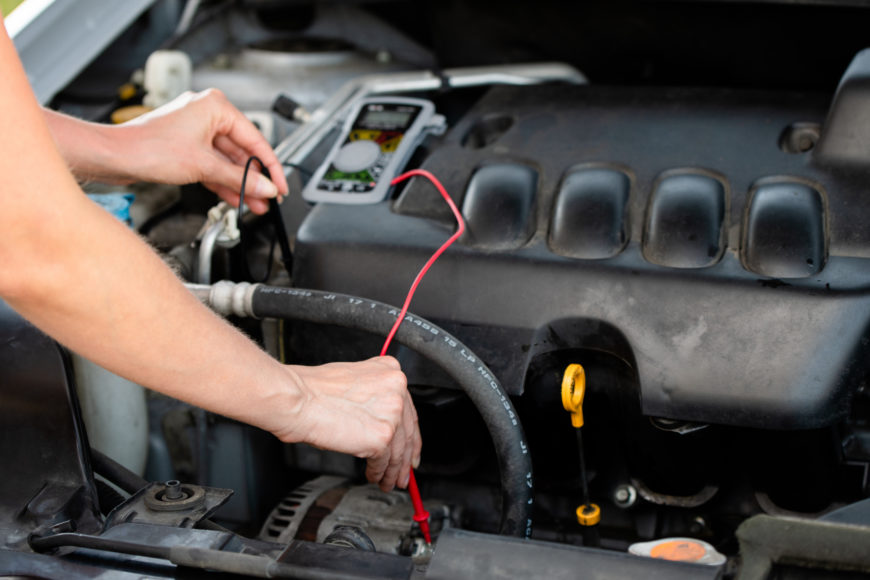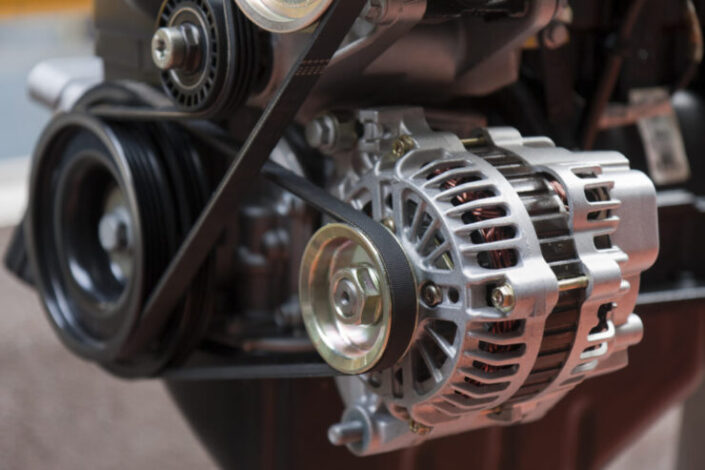Having a reliable car is important for many people. But when things start to go wrong, it can be difficult to know the cause of the problem.
One common issue that affects cars is a failing alternator. Knowing how to identify signs of a failing alternator can help you save time and money in getting your car back on track.
This article will look at the warning signs that indicate an alternator may be going bad, as well as tips for prevention and possible solutions.
Diagnose Common Symptoms of an Alternator That Is Not Working Properly

Common symptoms of an alternator that is not functioning properly can include the following: dimming headlights and interior lights, slow or non-starting engine, battery warning light illuminated on the dashboard, overheating engine due to a lack of cooling system power, and a whining sound from under the hood. If you experience any of these signs in your vehicle it’s important to take your car to a qualified mechanic for diagnosis as soon as possible.
A failing alternator could result in a complete loss of electrical power and leave you stranded. To identify if there is an issue with your alternator the mechanic must test its voltage output using diagnostic equipment.
This will help pinpoint whether or not there is an underlying problem with the device itself or another part related to it.
Understand the Potential Causes of Malfunctioning Alternators

Understand the potential causes of a malfunctioning alternator so you can quickly identify signs of a failing car alternator. Malfunctioning alternators can be caused by several problems, including loose or corroded battery cables, worn-out brushes in the alternator, damaged voltage regulators, and bad bearings.
In addition to these issues with the alternator itself, other parts of your car’s electrical system may also cause malfunctions; for example, an issue with your car’s starter motor or ignition switch could prevent your battery from receiving power from the engine. Other common causes include wiring faults due to corrosion or shorts in the charging circuit, poor connections at fuse boxes or relays, and incorrect belt tension settings resulting in inadequate charging output.
To accurately diagnose an issue it is important to understand how each part works together as well as understanding where they are located within your vehicle.
Take Immediate Action to Avoid Vehicle Breakdown

If you own a car, it is important to be aware of the signs that your alternator might be failing. Failing alternators can cause unreliable electrical systems, decreased battery life, and even engine breakdowns.
By identifying symptoms and taking immediate action, you can avoid these costly repairs and ensure that your vehicle runs safely on the road. The most common symptom of an imminent alternator failure is strange noises coming from under the hood of your car. If this happens while driving or after starting up your vehicle, it could signal a problem with the alternator belt or bearings wearing out.
Another warning sign is dimmed lights in the interior or exterior of your car when running off battery power alone. Lastly, if you notice any odd smells emanating from under the hood when turning on your ignition then there may also be something wrong with your alternator system.
By recognizing early signs of an impending alternator breakdown, drivers can take proactive steps to prevent further damage and repair costs by having their vehicles serviced at once by a professional mechanic who specializes in automotive diagnostics and repairs. Furthermore, regular oil changes are essential for maintaining optimal performance levels within all components of a vehicle engine system – especially those related to an old or worn-out Alternator belt or bearing system which should be replaced immediately as soon as it begins to falter to keep other parts running smoothly without interruption!
Conclusion

The Alternator is a critical component of your cars electrical system, and it can fail without warning. Learning to identify the signs of a failing Alternator is important for preventing unexpected breakdowns or costly repairs.
Common symptoms include dim headlights, a dead battery, a stalling engine, loud noises from under the hood, flickering dashboard lights, and slow motor starter cranking. If you notice any of these issues with your vehicle’s alternator, it is best to have it inspected by a professional mechanic as soon as possible to prevent any further damage or expensive repairs.

